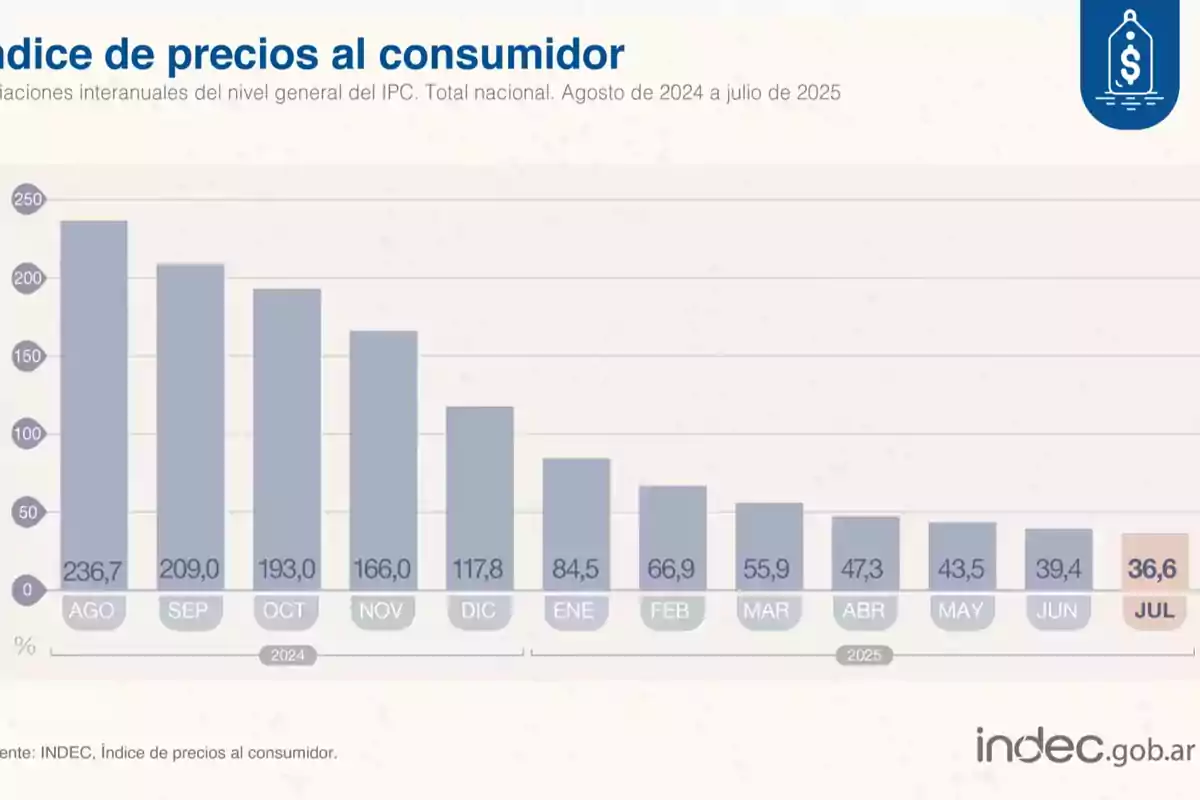
JP Morgan expects inflation to continue declining toward the end of the year.
The bank projects that the price index will maintain a downward trend after a slight acceleration in August
JP Morgan released a new report on the Argentine economy in which it evaluated price dynamics and the effects of the measures implemented by the Javier Milei administration.
According to the institution, August inflation would show a monthly rebound of 2.1% due to the limited impact of the peso's depreciation at the end of July. However, starting in September, the price index would resume its downward trajectory and close the year with a year-on-year variation of 26.8%.
The projection from the Wall Street giant supports the approach applied by the Central Bank and the Ministry of Economy to absorb liquidity, control the exchange rate, and sustain the decline in inflation.

In this context, JP Morgan stated: "We have revised our estimate for the August CPI slightly upward, to 2.1% monthly, and we expect inflation to resume a downward trajectory in September, projecting a general CPI of 26.8% year-on-year in December 2025".
The survey also indicated that in July, the Consumer Price Index stood at 1.9% monthly, slightly above expectations, although still below the 2.4% average recorded in the first half of the year.
The increase was due to seasonal factors and exchange rate movements in the last days of the month. Among the categories with the greatest impact were seasonal prices, which rose 4.1% due to higher fruit and vegetable prices, and the recreation category, with an increase of 4.8% during the winter holidays.
Regarding core inflation, the study indicated a deceleration to 1.5% monthly, while JP Morgan's preferred measure—excluding food—reached 1.6%. According to the analysis, these results reflect the moderation of underlying inflation and the positive impact of the economic policy implemented since April. In particular, core goods registered an increase of 1.7% monthly, compared to an average of 2.3% in the second quarter of the year.

The report also included a review of the liquidity and peso debt management policy. In the latest auction, the Treasury achieved a renewal rate of 61% on maturities totaling 15 trillion pesos. The remaining 39%, equivalent to 6 trillion, required an extraordinary auction to withdraw excess monetary supply. Meanwhile, a rise in remunerated reserve requirements to 50% was implemented.
For JP Morgan, this strategy allows the monetary base to be contained and keeps both the dollar and inflation under control, although with a cost associated with high and volatile short-term rates.
The diagnosis from the North American institution emphasizes that the slight acceleration in July doesn't alter the downward trend, as long as exchange rate pressures stabilize.
In this regard, JP Morgan highlighted that the current framework corresponds to a resumption of the downward path starting in September, consolidating a more moderate price outlook ahead of the October legislative elections.
More posts: